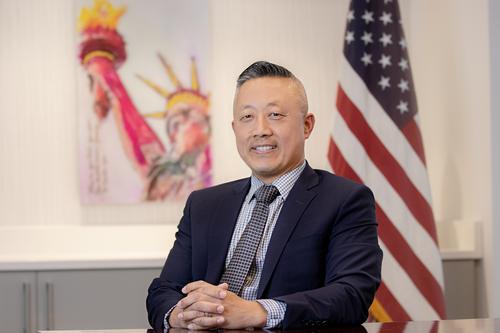Three types of F Visas are available in the United States. The three types of visas are:
F-3 Visas (Commuter Visas)
All three types of F Visas are associated with individuals in the country for educational purposes (or dependents of these individuals). The F-3 visa can be a great resource for individuals who qualify.
For more information on F visas or help with obtaining an F-3 visa, call Tucker, Nong and Associates today. Our licensed F-3 visa lawyers can help navigate you through the entire application process.
What is an F-3 Visa?
An F-3 Visa has a very limited application. An F-3 Visa, also known as a “commuter visa” is utilized by a foreign national that commutes into the United States for school. Individuals who can access this type of visa must reside within 75 miles of the academic institution at which they are studying. In other words, this type of visa is available only to a student who lives in Mexico or Canada attending classes in the United States within a close proximity to the border.
No U.S. Residency
Unlike an F-1 Visa, a student with an F-3 Visa is prohibited from residing in the United States. The F-3 Visa commonly is referred to as a commuter visa. This means that the student is expected to enter the United States for classes and other related academic activities and then return to his or her country or origin within a reasonable time.
Minimum Enrollment Requirements
In order to obtain and maintain an F-3 Visa, a person must be enrolled in school either full or part time. The requirements for part time enrollment under federal law are quite liberal when it comes to an F-3 Visa. In order to meet the threshold requirement to obtain an F-3 Visa, a student need only be enrolled in one class.
Dependents of F-3 Visa Holders
If a person obtains an F-1 Visa, a spouse or dependents can obtain what is called an F-2 Visa. This permits these other individuals to be in the United States while the F-1 Visa holder is in school. The dependents of a student who obtains an F-3 Visa are not eligible to obtain an F-2 Visa.
On Campus Employment
A person granted an F-1 Visa is permitted to obtain on campus employment during the course of his or her education. The same is not true for a holder of an F-3 Visa. For example, a person with an F-3 Visa cannot participate in an on campus work study program. However, if job training (which includes compensation) is a specific part of the course of education, that type of work is permitted.
Employment is Prohibited
As an aside, an individual with an F-3 Visa is not legally able to obtain any type of employment in the United States, whether on or off campus. The purpose of this visa is very limited: to permit an individual the ability to commute to and from a U.S. school, attend classes, participate in other related educational programming and then return home to Mexico or Canada.
Internships/Training Programs
A person with an F-3 Visa is able to participate in internship and similar types of training programs directly connected to their course of study. In addition, if a course of study requires it, a person with an F-3 Visa can participate in a practical training program following the completion of coursework associated with a particular degree or certificate program.
Other Limitations and Requirements
Other limitations associated with an F-3 Visa include a student being prohibited from owning a motor vehicle with U.S. license plates. Of course, as has been noted, a student cannot reside in the United States.
Renewal Requirements for F-3 Visas: An F-3 Visa is renewed on a semester by semester basis. In this way, a determination is made as to whether minimal enrollment and other requirements are being met by a particular student.
Do You Need Help In Getting Your Green Card Or Visa in Virgina, Maryland or Washington D.C.?
If you're trying to obtain a Green Card or Visa you need to speak with an experienced immigration attorney as soon as possible. Please contact us online or call our Vienna, Virgnia office directly at 703.991.7978 or our Rockville, Maryland office at 301.637.5392 to schedule your case consultation.

